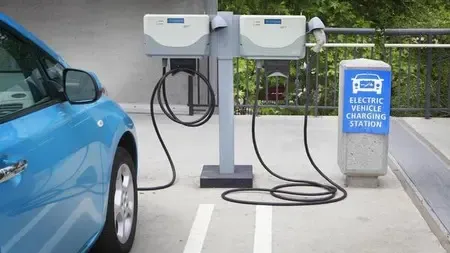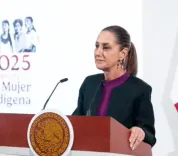What is Odisha's Draft EV Policy 2025?

Synopsis
Key Takeaways
- 50% adoption target for electric vehicles by 2030.
- Enhanced incentives across various vehicle types.
- Mandatory fast charging stations at fuel pumps and bus terminals.
- Creation of Centres of Excellence for R&D in EV technology.
- Specialized training programs to develop an EV-ready workforce.
Bhubaneswar, Sep 10 (NationPress) The government of Odisha has introduced its draft Electric Vehicle (EV) Policy 2025, outlining an ambitious strategy to enhance green mobility and position the state as a frontrunner in sustainable transportation in India.
The proposed policy aims for a remarkable 50 percent adoption of electric vehicles in new registrations by 2030, providing incentives across a range of vehicle types—including two-wheelers, cars, buses, trucks, and construction machinery.
In response to falling short of the previous 2021 EV Policy target, which sought 20 percent adoption by August 2025 but reached only 9 percent, the state government is rolling out numerous significant promotional initiatives. The incentives for purchasing electric two-, three-, and four-wheelers, as well as buses, trucks, and retrofitted vehicles, have been enhanced and are now tied to performance and efficiency metrics.
The new draft EV policy mandates that all fuel stations along National and State Highways, along with bus terminals and stops owned by the Odisha State Road Transport Corporation, must have a minimum of one fast charging station.
Additionally, the Odisha government plans to implement Viability Gap Funding to facilitate the establishment of fast charging stations throughout the state's highways.
The policy introduces capital subsidies for the first 100 public battery-swapping stations created in the region.
Moreover, the state government will establish at least three Centres of Excellence (CoEs) dedicated to Research and Development in electric vehicles, charging infrastructure, and hydrogen technologies. The draft policy includes provisions for increasing the number of incubation hubs for startups, along with a dedicated Rs 15 crore fund under the 'Chief Minister’s EV R&D Grant' to promote innovation and commercialization.
In an effort to cultivate an EV-ready workforce, the government will launch specialized training programs under SCTE&VT, aiming to train 500 skilled professionals by 2030.
According to the draft policy, all vehicles used by various government offices must transition to electric vehicles within six months of the policy's notification. Additionally, all school buses, ambulances, and PCR vans are to be replaced with electric vehicles within 12 months.
The state government will also form a State EV Cell, Steering Committee, and Task Force to ensure effective policy implementation and stakeholder collaboration.
This draft policy will remain in effect until December 31, 2030. The government has welcomed public and stakeholder feedback within 30 days following its release in the Odisha Gazette. Through this initiative, Odisha aspires to transform its transportation ecosystem while significantly contributing to India's decarbonization objectives and the national Net Zero 2070 commitment.







